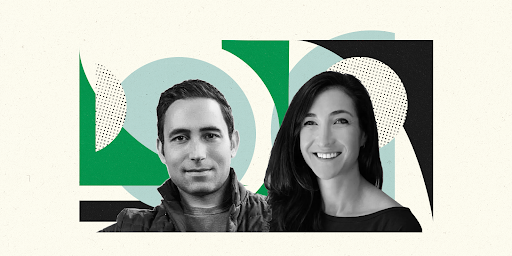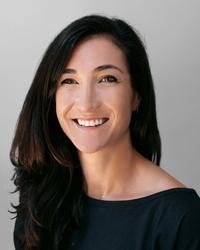Play To Your Strengths, Hire for Your Weaknesses, and Scott Belsky’s Other Advice for Chief Product Officers
Ahead of his fireside at Primary’s NYC Summit, I sat down with one of the most notable and prolific Product leaders in the New York ecosystem.

Being an early stage founder means transitioning from tactical to strategic operations—and partnering with new and existing executives in this pursuit. Easier said than done. In the Around the Exec Table series, we feature tips, insights, and best practices, role by role. Keep up with new installments by following me on LinkedIn.
As the team here at Primary gets ready to host our fourth NYC Summit, New York’s most exclusive gathering of top investors and founders, I sat down with the unparalleled Product leader Scott Belsky for a conversation a little different than the one he’ll have onstage next week.
In this conversation, the Adobe Chief Product Officer took a deep dive on what it means to be a Product leader, how founders can best work with them, and what this looks like in the more challenging market ahead.
How does carrying out the Product vision differ when you're a founder versus a Product leader supporting a founder CEO?
I've never worked for a founder CEO before, but what I can say is I feel strongly that founders should never outsource their competitive advantage as a company. If you're building an Engineering product, you shouldn't outsource your Engineering. Even in the later stage, you should hire Product leaders that truly move your vision forward and tune into your sensibility as a Product leader, as opposed to other Product founder types coming in working for you, which I don't think you should do.
If you're a CEO of a company and Product is not your default way of thinking about the world, it's really helpful to hire someone who is a Product founder type because someone needs to set the flag and build the road. Setting the flag is really about empathy, understanding the natural human tendencies of people, and understanding where the world is likely going over the next few years with some degree of uncertainty but directionally accurate, hopefully.
For Product leaders, there are different personas. There's the visionary, those who love the craft, and then the ones who are more operational. Would you say that if a founder CEO has one of those superpowers, it is reasonable to hire another persona Product leader to carry out the other?
In my experience, the very operational Product leaders are more like Program Managers. They break down what needs to get done. They constantly track it. They help prioritize with the team, and they incorporate customer research and user feedback to drive prioritization. It's a very operational role that is important, and it can be done by a Product Manager or a Program Manager. The craft-oriented Product leaders have a strong understanding of design. They adhere to a set of Product principles that are very human-driven and can help breed utilization and help the team intuitively craft a product experience to be better. I think that the founder Product leader has the vision of where this all needs to go.
I know founders who are amazing Product leaders but don't have that vision, and what they end up with is an amazingly beautiful product that just isn't needed by the world and isn't forward-leaning. I think you're right. Those are probably the three sorts of superpowers, and if you don't have one of them, you want to run yourself out.
For you in your journey, what was the biggest way you had to adjust your role or approach to work from being a founder to now an Executive Vice President and Chief Product Officer at a Fortune 500 company?
My role at Adobe is the Chief Product Officer, so I oversee all the VPs across the Product, Engineering, and Design organizations. I'm trying to help the company focus its strategy and also drive M&A transactions that fill gaps in our portfolio and ensure that the narrative is cohesive across the board.
I'm helping with the vision side, but also, I'm trying to bring in more people that appreciate the craft and care about the user experience at every step along the journey.
How does a founder or CEO know when the right time is to bring on Product leadership?
Several founders are great business leaders, and they came up with an idea in business school. Then they have an amazing business plan and go-to-market model, and they don't understand at all what it means to build a product. In those instances, I suggest oftentimes if they have a founding level Product leader, like a cofounder, to drive Product, and if they can hire someone instead, it has to be someone who is empowered to drive the vision and that they're not threatened by because ultimately, we're shipping an experience.
As a Chief Product Officer coming into an organization, what else needs to be healthy around either the exec table or in the business for that person to succeed?
Design must be empowered in the organization. Design always having a seat at the table is easy to say, but what it means is that in trade-off discussions, in reviews, there's a designer present who can represent the interests of the product and translate the feedback that's happening in the market and how things are being designed to address the problems and the needs.
I also see a metrics-driven organization, so a team that captures data, a source of truth of where the data is, what are the goals or objective key results for the teams that they should measure themselves by, and are we constantly holding ourselves accountable with the data.
I love that you bring up metrics and data. Where do you fall on metrics, and which metrics are the most important, if there are any at all?
Organizations benefit from simplicity around key metrics, so it is really helpful to find what that North Star Metric is. But also, you want to make sure it's the right one, and the right one is dictated by what you believe is important for the business and customers.
Where a lot of organizations go wrong is they'll make their key metric revenue, and then suddenly, they're doing things in the experience that optimize for revenue that gets in the way of customer experience and satisfaction. Then they render why they have churned suddenly and why the brand is not respected. A lot of big companies fall into that problem, especially as they get into the quarterly cadence of reporting.
If a founder or CEO's managing someone in Product, and maybe that's not their superpower, how do they know if that person is winning and succeeding or not?
You have to hold people accountable to the metrics that they set for themselves, so managing Product leaders in my world, we have quarterly set OKRs, objective key results, that are driven by what our intentions are and what our beliefs are.
To me, as a three-time Chief People Officer, that sounds no different than how I would encourage any executive to manage their team. Do you think there's anything different about Product than other teams?
I don't, except for the fact that there's a very human empathy driven part of Product that is as much psychological as it is measurable and technical. People use products and like products for very deeply seated reasons.
I always like to say that users don't rave about a product doing what they expected it to do. They rave about a product doing what they didn't expect.
If someone reading this piece is hiring a Product leader, how would you describe or assess those intrinsic competencies around human delight, human psychology, EQ?
Nothing's better than looking at the products that they've made before. Looking at the onboardings, looking at the splash pages, looking at the help sections. When you feel a product, you're feeling the DNA of the team that made it. You can tell by using a product who didn't talk to whom, what the fiefdoms were, versus how centralized and organized the organization was.
I love asking the Product leader candidates about design and what their relationship is with design and how they work with design. You can instantly tell whether they treat design as a vendor, or they treat design as a partner and a competitive advantage.
Are there any questions that you like to ask?
I like to ask about mistakes and how they handled them. I like to ask about Product decisions that they were so sure were right but ended up being wrong and why because that shows a lot of insight and introspection into the nuances of some of the things we just discussed. I also love to ask about people's aspirations, what are they hoping to achieve in their career, and why are they interested in this product.
Let’s talk about the future. Are we headed into a recession? Are these going to be tougher times? I know in the book that you wrote, The Messy Middle, you talk about Product leaders and founders enduring great times and tough times, so any advice that you're giving either Product leaders or founder CEOs?
The competitive advantage of some of the best teams is oftentimes just sticking together long enough to figure it out, and that's hard because everyone's always seduced by the latest headlines. Everyone thinks that everyone else is doing better than they are, and of course, no one is vocal in the press about their struggles proactively. It seems like everyone's either thriving or dying, but there's nothing in between. We're all in between, right? I mean, that is what I refer to as the messy middle.
What we need to do is build cultures that can just endure these ups and downs and allow these teams to stick together long enough to figure it out and absorb the lessons, develop a sixth sense of how each other should work, and understand their markets, learn things the hard way, and rise above those difficult periods. There's nothing better than that.
